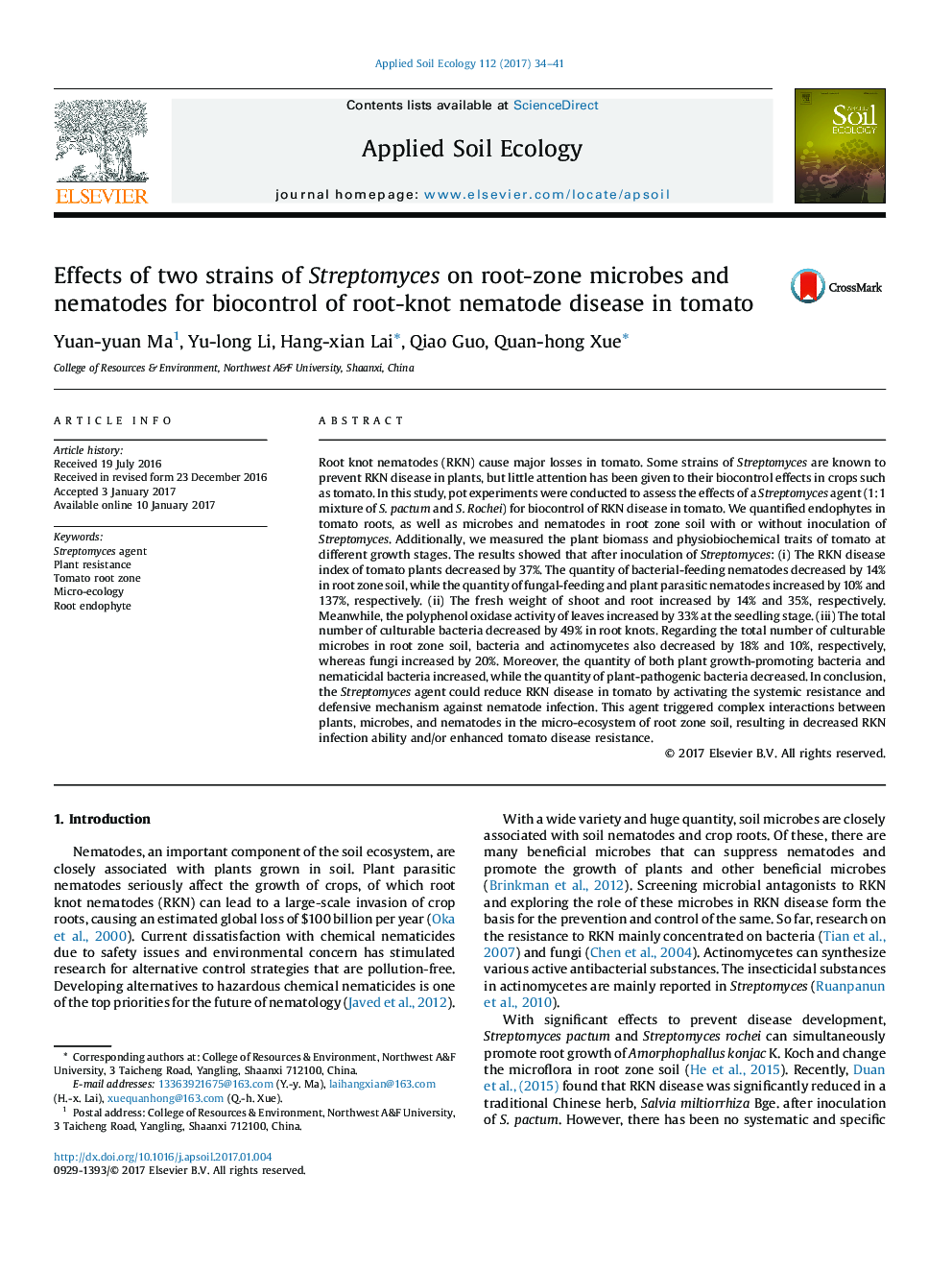| کد مقاله | کد نشریه | سال انتشار | مقاله انگلیسی | نسخه تمام متن |
|---|---|---|---|---|
| 5742756 | 1617771 | 2017 | 8 صفحه PDF | دانلود رایگان |
- The root zone soil ecosystem was studied to explore the disease-resistance mechanisms.
- Streptomyces reduced quantity of nematodes in root zone soil of tomato seedlings.
- Streptomyces altered numbers and composition of microbes and nematodes in root zone soil.
- Streptomyces promoted beneficial strains to colonize in tomato roots, root knots, and root zone soil.
- Streptomyces showed great control effect on tomato root knot nematodes.
Root knot nematodes (RKN) cause major losses in tomato. Some strains of Streptomyces are known to prevent RKN disease in plants, but little attention has been given to their biocontrol effects in crops such as tomato. In this study, pot experiments were conducted to assess the effects of a Streptomyces agent (1:1 mixture of S. pactum and S. Rochei) for biocontrol of RKN disease in tomato. We quantified endophytes in tomato roots, as well as microbes and nematodes in root zone soil with or without inoculation of Streptomyces. Additionally, we measured the plant biomass and physiobiochemical traits of tomato at different growth stages. The results showed that after inoculation of Streptomyces: (i) The RKN disease index of tomato plants decreased by 37%. The quantity of bacterial-feeding nematodes decreased by 14% in root zone soil, while the quantity of fungal-feeding and plant parasitic nematodes increased by 10% and 137%, respectively. (ii) The fresh weight of shoot and root increased by 14% and 35%, respectively. Meanwhile, the polyphenol oxidase activity of leaves increased by 33% at the seedling stage. (iii) The total number of culturable bacteria decreased by 49% in root knots. Regarding the total number of culturable microbes in root zone soil, bacteria and actinomycetes also decreased by 18% and 10%, respectively, whereas fungi increased by 20%. Moreover, the quantity of both plant growth-promoting bacteria and nematicidal bacteria increased, while the quantity of plant-pathogenic bacteria decreased. In conclusion, the Streptomyces agent could reduce RKN disease in tomato by activating the systemic resistance and defensive mechanism against nematode infection. This agent triggered complex interactions between plants, microbes, and nematodes in the micro-ecosystem of root zone soil, resulting in decreased RKN infection ability and/or enhanced tomato disease resistance.
167
Journal: Applied Soil Ecology - Volume 112, April 2017, Pages 34-41
